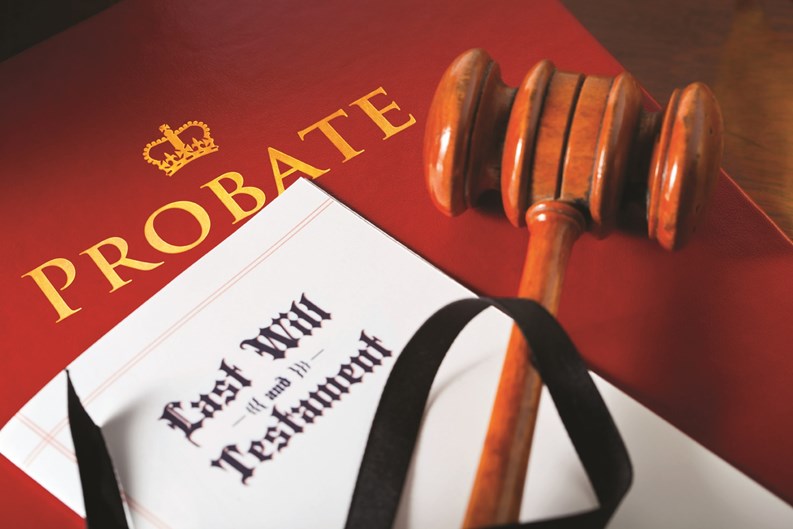It is said that the only two things that you can truly count on are death and taxes but if you own a co-op or condo and haven’t adequately prepared for your own eventual demise, you can also count on your passing causing even more grief for the people you’ve left behind.
“The owner of an apartment often believes that he or she has absolute freedom to dispose of the apartment as desired,” says Marc Landis, managing partner of the Manhattan-based law firm Phillips Nizer LLP. Sadly however, what happens to a co-op or condo during major life events, such as a death or divorce, isn’t actually dictated by the shareholder or unit owner, but rather by the building’s governing documents.
That fact is often learned when it’s too late to do anything about it, and family members are left wondering why they can’t have that penthouse unit that Aunt Jane lived in. Regardless of what you may have promised them, whether or not you can leave your home to your children, your partner, or to your Uncle Fred depends on whether you own a co-op or a condo, as well as what is written in your particular building's proprietary lease, declaration of covenants, conditions and restrictions and other governing documents.
Co-op Shares
When a tenant buys into a co-op building, he or she is actually purchasing a percentage of shares in the cooperative corporation that owns it—not the unit itself. Essentially, the shareholder is leasing their unit from the corporation. So while it may feel like homeownership and the shareholder might assume they can then bequeath the shares to a loved one should the resident shareholder pass away, that’s not always the case. The bylaws of co-ops typically have restrictions on what a resident may and may not do with their shares, including how they can be transferred upon the shareholder's death.
Bylaws in a co-op dictate how the corporation operates, which is different from the bylaws in a condominium. “The difference between the treatment of condo and co-op ownership during a death or divorce is that generally condo ownership means that the owner has the right to freely transfer ownership, subject only to limited restrictions, such as the condo’s right of first refusal,” says Landis. “The owner of shares in a cooperative corporation must obtain approval from the corporation’s board of directors or shareholders before transferring ownership.”
What that means is that your niece or cousin, who always wanted that penthouse unit with the great view of the Hudson River, may not be able to move in before getting approval by the board.
“If you have a condo or co-op owned by one person, then upon the death the estate would have to be administered,” says attorney Ann-Margaret Carrozza of the Law Offices of Ann-Margaret Carrozza in Bayside, Queens. “If there’s no will, the estate would go through the administration proceeding in the county surrogate’s court.”
There are a few other things to keep in mind too. If a deceased owner held a joint title, such as a “tenancy by the entirety,” which is limited to married couples or “joint tenancy with right of survivorship,” Landis says that it’s the survivor who automatically becomes the owner by operation of law, regardless of whether the property is a co-op or a condo.
A tenancy by the entirety allows spouses to own property together as a single legal entity and can only be created by married persons. If one of the spouses passes away, the deceased spouse's interest in the property automatically goes to the surviving spouse, and not to the heirs of the deceased. If the decedent left a will or a living trust, those documents can also determines who gets final custody of the unit.
Get Your House in Order
Unfortunately, according to a 2012 survey by the AARP, 41 percent of Baby Boomers (those born between1946 and 1964) and a whopping 71 percent of people under the age of 34 do not have wills. The study also cited that procrastination was one of the biggest reasons why (34 percent), followed by feelings that it was unnecessary (22 percent) or too expensive (21 percent). The bottom line is that the higher your net worth is, the more complicated things can become if something were to happen to you or your loved one.
An estate, which includes a condo or co-op apartment unit, may also go to probate, which means the transferring the property of someone who has died to the heirs or beneficiaries, deciding if a will is valid, and taking care of the financial responsibilities of the person who died. Dealing with the courts and the property of someone who has died can become very complicated—but many, if not most of those legal hassles can be easily avoided by creating a living trust (sometimes called an "inter vivos" or "revocable" trust), a written legal document through which assets are placed into a trust for your benefit during your lifetime and then transferred to designated beneficiaries at your death by your chosen representative, called a "successor trustee."
Life insurance policies, trusts and certain types of investment accounts often allow for the identification of a beneficiary, the person you name in a life insurance policy to receive the death benefit. “Usually, these assets will pass to the beneficiary without any involvement with the rest of the estate that is governed by the will or statute,” says Landis.
The Deal About Divorce
A unit transfer is handled a little differently when a couple decides to call it quits in their marriage. “Transferability of a co-op is subject to whatever consent rights the board has,” says Aaron Shmulewitz, an attorney and a partner with the law firm of Belkin Burden Wenig & Goldman, LLP in New York City. “Many proprietary leases provide for no consent necessary for a transfer between spouses, but some boards take the position that if they’re divorcing, they’re no longer spouses.”
Divorcing parties who own a co-op also need to ensure that the cooperative corporation will find any ownership changes to be acceptable. “For example, a co-op board might insist that a sole remaining owner needs to provide a guarantee from a financially responsible party,” says Landis. “However, if a couple owned a condo, they are free to do with it as they agree in a settlement agreement, or as directed by a judge.”
“In a divorce, if the apartment is owned by both spouses, its disposition will be the subject of their negotiations, and will be addressed in the divorce agreement,” says Shmulewitz. “With a co-op, the stock and lease should be accessible, and the divorce agreement should be delivered to the board when transfer is sought.”
Other Considerations
To save one's family any unnecessary aggravation during what is almost always a very difficult time, prospective co-op owners should find out what the rules are in a particular building before closing, including how shares can be transferred and what the approval process is for any future shareholders. And legal pros unanimously stress the importance of unit owners having a will prepared to ensure that their last wishes regarding the unit are carried out upon their death.
And if you're thinking that transferring your co-op or condo to your child for estate tax benefits is the right thing to do, think again. It truly depends on your financial situation. “Sometimes it makes sense, sometimes it doesn’t,” says Shmulewitz. “There are other possibilities, like transferring to a trust.”
To confirm that you are making the right decisions for your unit, it is best to consult with an attorney who understands both real estate ownership and estate planning to make sure that you have the right set of documents to protect your interests. “When it comes to estate planning and the many different variables among how co-ops and condos operate, one size does not fit all,” says Landis.
Once a unit owner dies, there are burdens and liabilities that are passed along to the executor of a co-op or condo’s estate. “If there’s a death, an executor must be appointed, and should ask that maintenance bills be directed to him/her going forward,” says Shmulewitz. “The obligation to pay maintenance and assessments, and to comply with all other requirements falls upon the executor as well. The executor effectively steps into the shoes of the decedent and since the decedent has died, the ability of others to live in the apartment might be more restricted than when he or she was alive.”
Consider a fictitious couple, John and Jane. During the tumultuous separation preceding their divorce, John changed the locks on the couple's apartment door and told the building staff that Jane wasn’t allowed in. Jane, of course, was extremely angry at John’s harsh move and caused quite a spectacle in the building when she realized what he'd done.
Many of these problems could have been prevented if co-owners who are married or who are contemplating marriage considered entering into either a postnuptial or prenuptial agreement, which—unromantic as they may be—allow couples to work through these types of issues in advance.
“Co-owners who are not married should consider a joint ownership agreement that would accomplish the same thing,” says Landis. “These agreements are also helpful to memorialize the financial contributions that have been made, and are required to be made in the future, by each party.”
During a divorce, a board must also be concerned about security in the building, and with avoiding drama like what unfolded with John and Jane. “There are often disputes between the spouses over who has access to the apartment, as one spouse seeks to have building staff bar the other from entering,” says Shmulewitz. “This puts building staff in a very awkward and uncomfortable position. If an apartment is owned by both spouses, a board would be well-advised to decline to adhere to any such directive unless a court order is issued to that effect.”
All it takes to avoid such complicated issues is a little knowledge of your building’s bylaws and a little pre-planning. Nobody wants to think about their demise, or consider that their love may not in fact conquer all but uncomfortable though it may be, doing so will save your loved ones a great deal of discomfort later.
Lisa Iannucci is a freelance writer and a frequent contributor to The Cooperator.







Leave a Comment